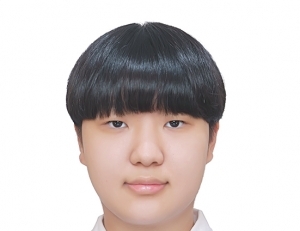Today, as environmental pollution gets worse, enviro-political campaigns and regulations are increasing. Among them, disposable products are especially highly regulated, but the regulation bills’ details and accurate reasons for the introduction of bills have not been revealed. Therefore, the Pharos will explain the bills’ details and their introduction causes, and provide information about the regulated things. Also, we will investigate the expected direction and the critical points of the regulation bills that are in force now.
In April, there was “a case of refusing to collect waste vinyl,” in which a recycling company rejected recycling waste vinyl. To resolve the problem, the government executed the “Reuse of Resources Act,” which is intended to save resources and accelerate recycling. If the law is revised, disposable bags will be banned at 13,000 supermarkets and large stores, and 18,000 bakeries will not be allowed to provide them for free. Accordingly, the use of shopping bags and recycling boxes will increase, and plastic bag usage will decrease.
Since August, in accordance with subordinate legislation pertaining to resources recycling, a prohibition bill restricting the use of disposable cups in fast-food restaurants and cafes has been in effect. According to this bill, we have to use multi-use cups. If a shop is caught using disposable products, the owner has to pay a differential penalty based on the size of the shop or the extent of the violation from 50,000 won to 2,000,000 won. At first, there was concern that people wouldn’t accept this change easily. However, it seems customers have adjusted to this rule well. For example, the number of complaints is falling and the number of people who use tumblers is increasing.
Although disposable cup usage is banned in shops, if you go to a cafe, you can see many people who use plastic straws with a multi-use cup. That’s because the plastic straw is not in the “disposal things” list yet. At this time, there is no bill that regulates using plastic straws. However, the plastic straw is a major form of pollution along with disposable cups. To solve this problem, the Korean government has devised a rice straw that is made of rice and tapioka. The rice straw’s production cost is expensive (15 won) compared to the plastic straw’s (7 won), but the rice straw is much more eco-friendly because of its short disintegration term of just 2 months. The plastic straw’s term is 450 years. Also, some people who are interested in the environmental issue are using a personal bamboo straw, and some franchise cafes have produced a cup cover that does not need a straw.
Furthermore, controls on the use of paper cups that we use almost every day will be executed. Since the name is “paper”cup, many people think the product can be recycled as paper, but the paper cup can’t be recycled as paper. The reason is the plastic that coats the inside of the paper cup to make it waterproof. However, when 100% paper cups are collected and drained, they can be recycled in a toilet tissue factory. Additionally, the government will again introduce a disposable cup deposit system that was put aside in 2008.
Now that we have checked the background of the Reuse of Resource Act and the alternatives, we would now like to look into the limitations of the disposable product regulation. First of all, the regulatory standards are inconsistent due to different local governments’ inspection criteria. The regulatory items vary depending on the region and the implementation date. In addition, there are concerns that stores may “show” the use of disposable products only for a certain period of time to avoid surveillance. Moreover, there is the problem that the number of recommendations or orders of implementation for poorly executed companies is extremely small compared to the number of inspections of other products. In fact, it is the case that the recommended figure is only 5 percent compared to the number of inspections of the lunch box companies in Seoul. Therefore, it is necessary to unify different standards for each local government.
Next, it is a problem that there are no efficient products to replace disposable products when there is a large influx of people in a short period of time. In places like amusement parks and funeral halls, for example, there is a high demand for disposable products in a short period of time, and many disposable products are used due to hygiene and disposal problems. Thus, it is premature to implement such regulations because places such as those mentioned above do not have many substitute materials, and also they are new to the use of eco-friendly products.
In addition, the problem of equity is on the rise. Problems with the equity of discriminatory regulations in the same business unit may result in the following cases: For synthetic resin packing in lunch boxes, boxes manufactured by the food manufacturing industry are regulated, but those manufactured by restaurants are excluded from the regulation. Even though the same product is used, the regulation is inconsistently applied depending on the characteristics of the source. If cases such as these become common, it will cause great problems. For example, if disposable products are used in a take-out restaurant or fast food restaurant, there is no alternative to regulation, but so far efforts for regulation have been unsuccessful.
The regulation of disposable products is a good policy for environmental preservation in the long run. However, there are still too many improvements that are needed. Substitutes for disposable products that are now used are insufficient to meet the needs of the market. Thus, more efforts should be made at the national level for a more systematic implementation of eco-friendly policies, such as providing support for the use of alternative materials, and encouraging people to actively strive to comply with the new policies. Therefore, the Pharos hopes that students at Kyonggi University will work together to preserve the environment through personal efforts, such as eliminating the use of disposable products and using eco-friendly products.
70th Reporter CHOI SOYEON clara3003@naver.com
71st Cub Reporter LEE GAEUN antonia0504@naver.com
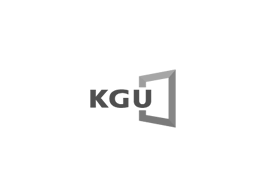 Freedom Given to Youth: An Opportunity for Choice or a Burden of Constraint?
“Are we truly free today?” Classical literature is far more than time-honored stories. It offers profound insights into human nature and society that transcend time, remaining a valuable resource for examining the challenges our world faces today. This article will draw on George Orwell’s 1984 and Charles Dickens’ Oliver Twist to explore the contemporary issues of youth housing and the emergence of a surveillance society ...
Freedom Given to Youth: An Opportunity for Choice or a Burden of Constraint?
“Are we truly free today?” Classical literature is far more than time-honored stories. It offers profound insights into human nature and society that transcend time, remaining a valuable resource for examining the challenges our world faces today. This article will draw on George Orwell’s 1984 and Charles Dickens’ Oliver Twist to explore the contemporary issues of youth housing and the emergence of a surveillance society ...

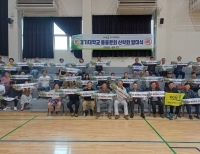 [단신] 산악회, 본교 동문의 버팀목이 될 수 있도록
[단신] 산악회, 본교 동문의 버팀목이 될 수 있도록
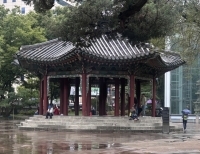 [사회메인] 노인 인구 1,000만 시대, 준비 없는 사회가 불안해
[사회메인] 노인 인구 1,000만 시대, 준비 없는 사회가 불안해
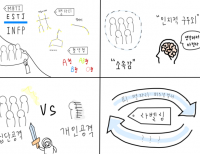 [네컷만화] 라벨링 문화
[네컷만화] 라벨링 문화
 [진리터] 결국 우리 모두 돌아볼 것이니
[진리터] 결국 우리 모두 돌아볼 것이니

 목록
목록





